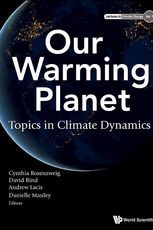
Our Warming Planet: Topics in Climate Dynamics
Authors : Cynthia Rosenzweig (NASA Goddard Institute for Space Studies, USA & Columbia University, USA), David Rind (NASA Goddard Institute for Space Studies, USA & Columbia University, USA), Andrew Lacis (NASA Goddard Institute for Space Studies, USA), Danielle Manley (Columbia University, USA)
Publisher : World Scientific
ISBN : 978-981-3148-77-2 (Hardcover), 978-981-3148-78-9 (Softcover)
There are currently no reviews for this book title.
The processes and consequences of climate change are extremely heterogeneous, encompassing many different fields of study. Dr David Rind in his career at the NASA Goddard Institute for Space Studies and as a professor at Columbia University has had the opportunity to explore many of these subjects with colleagues from these diverse disciplines. It was therefore natural for the Lectures in Climate Change series to begin with his colleagues contributing lectures on their specific areas of expertise.
This first volume, entitled Our Warming Planet: Topics in Climate Dynamics, encompasses topics such as natural and anthropogenic climate forcing, climate modeling, radiation, clouds, atmospheric dynamics/storms, hydrology, clouds, the cryosphere, paleoclimate, sea level rise, agriculture, atmospheric chemistry, and climate change education. Included with this publication are downloadable PowerPoint slides of each lecture for students and teachers around the world to be better able to understand various aspects of climate change.
The lectures on climate change processes and consequences provide snapshots of the cutting-edge work being done to understand what may well be the greatest challenge of our time, in a form suitable for classroom presentation.
This first volume, entitled Our Warming Planet: Topics in Climate Dynamics, encompasses topics such as natural and anthropogenic climate forcing, climate modeling, radiation, clouds, atmospheric dynamics/storms, hydrology, clouds, the cryosphere, paleoclimate, sea level rise, agriculture, atmospheric chemistry, and climate change education. Included with this publication are downloadable PowerPoint slides of each lecture for students and teachers around the world to be better able to understand various aspects of climate change.
The lectures on climate change processes and consequences provide snapshots of the cutting-edge work being done to understand what may well be the greatest challenge of our time, in a form suitable for classroom presentation.
Cynthia Rosenzweig is a leader in the field of climate change impacts. She is a Senior Research Scientist at Columbia University's Center for Climate Systems Research and a professor in the Department of Environmental Science at Barnard College. She is also a senior research scientist at the NASA Goddard Institute for Space Studies, where she heads the Climate Impacts Group. She is the co-founder of the Agricultural Model Intercomparison and Improvement Project (AgMIP), a major international collaboration to improve global agricultural modeling, understand climate impacts on the agricultural sector, and enhance adaptation capacity in developing and developed countries. She is Co-Chair of the Urban Climate Change Research Network (UCCRN) and Co-Chair of the New York City Panel on Climate Change (NPCC). She was a coordinating lead author on observed climate change impacts for the IPCC Working Group II Fourth Assessment. She was named as one of Nature's "Ten People Who Mattered in 2012". A recipient of a Guggenheim Fellowship, she joins impact models with climate models to project future outcomes under altered climate conditions.
David Rind is a Senior NASA Climate Researchers Emeritus at the Goddard Institute for Space Studies. For more than 30 years he was a climate research scientist for NASA, as well as an adjunct professor at Columbia University, teaching graduate-level courses in climate dynamics and atmospheric dynamics. During this time he had the pleasure of working with a number of graduate students, as well as many close colleagues. He has more than 300 publications relating to climate and climate change, is a fellow of the American Geophysical Union, and a recipient of many awards, including the 2007 Nobel Peace Prize as a lead author on the Intergovermental Panel on Climate Change (IPCC).
Andrew Lacis (PhD in Physics from University of Iowa, 1970) is a senior research scientist at the NASA Goddard Institute for Space Studies (GISS) in New York City. Dr Lacis has been a member of the GISS climate modeling group since the mid-1970s. His area of expertise is development of fast and accurate radiative transfer techniques to model solar and thermal radiation with applications to the study of global climate change and the remote sensing of planetary atmospheres. He is a fellow of the American Geophysical Union, and is the principal architect of the radiation modeling methodology that is used in the general purpose GISS coupled atmosphere-ocean Global Climate Model (GCM).
Danielle Manley is a Staff Associate of Research at Columbia University's Center for Climate Systems Research (CCSR), where her primary role is in communicating climate risk information to stakeholders for local decision-making and resilience planning. She serves as a project manager for the New York City Panel on Climate Change (NPCC), She is a researcher for the Consortium for Climate Risk in the Urban Northeast, a NOAA-funded Regional Integrated Sciences and Assessments Program, as well as for the Adaptation for Development and Conservation (ADVANCE) partnership between CCSR and the World Wildlife Fund. She has a Bachelor's of Science in Environmental Science from the University at Buffalo, and a Master's Degree in Climate and Society from Columbia University.
David Rind is a Senior NASA Climate Researchers Emeritus at the Goddard Institute for Space Studies. For more than 30 years he was a climate research scientist for NASA, as well as an adjunct professor at Columbia University, teaching graduate-level courses in climate dynamics and atmospheric dynamics. During this time he had the pleasure of working with a number of graduate students, as well as many close colleagues. He has more than 300 publications relating to climate and climate change, is a fellow of the American Geophysical Union, and a recipient of many awards, including the 2007 Nobel Peace Prize as a lead author on the Intergovermental Panel on Climate Change (IPCC).
Andrew Lacis (PhD in Physics from University of Iowa, 1970) is a senior research scientist at the NASA Goddard Institute for Space Studies (GISS) in New York City. Dr Lacis has been a member of the GISS climate modeling group since the mid-1970s. His area of expertise is development of fast and accurate radiative transfer techniques to model solar and thermal radiation with applications to the study of global climate change and the remote sensing of planetary atmospheres. He is a fellow of the American Geophysical Union, and is the principal architect of the radiation modeling methodology that is used in the general purpose GISS coupled atmosphere-ocean Global Climate Model (GCM).
Danielle Manley is a Staff Associate of Research at Columbia University's Center for Climate Systems Research (CCSR), where her primary role is in communicating climate risk information to stakeholders for local decision-making and resilience planning. She serves as a project manager for the New York City Panel on Climate Change (NPCC), She is a researcher for the Consortium for Climate Risk in the Urban Northeast, a NOAA-funded Regional Integrated Sciences and Assessments Program, as well as for the Adaptation for Development and Conservation (ADVANCE) partnership between CCSR and the World Wildlife Fund. She has a Bachelor's of Science in Environmental Science from the University at Buffalo, and a Master's Degree in Climate and Society from Columbia University.
There are currently no reviews for this book title.
Buy this book, https://www.worldscientific.com/worldscibooks/10.1142/10256, 13575, false
FAQs
Click on the "Buy this book" button
You can email us at book-review@enago.com and we will get back to you with the next steps shortly.
New Releases
-

Advances in the Molecular Understanding of Colorectal Cancer
-
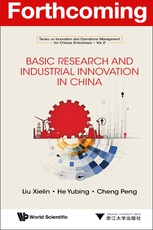
Basic Research and Industrial Innovation in China
-
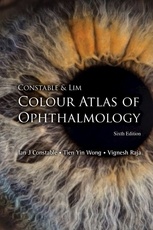
Constable & Lim Colour Atlas Of Ophthalmology: Sixth Edition
-
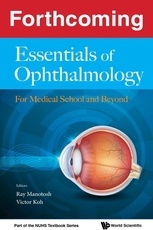
Essentials of Ophthalmology: For Medical School and Beyond
-
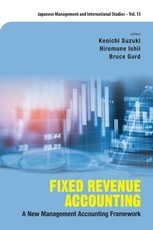
Fixed Revenue Accounting: A New Management Accounting Framework
All featured publishers and authors can avail of a free promotional interview on Enago Academy! Write to us now!
